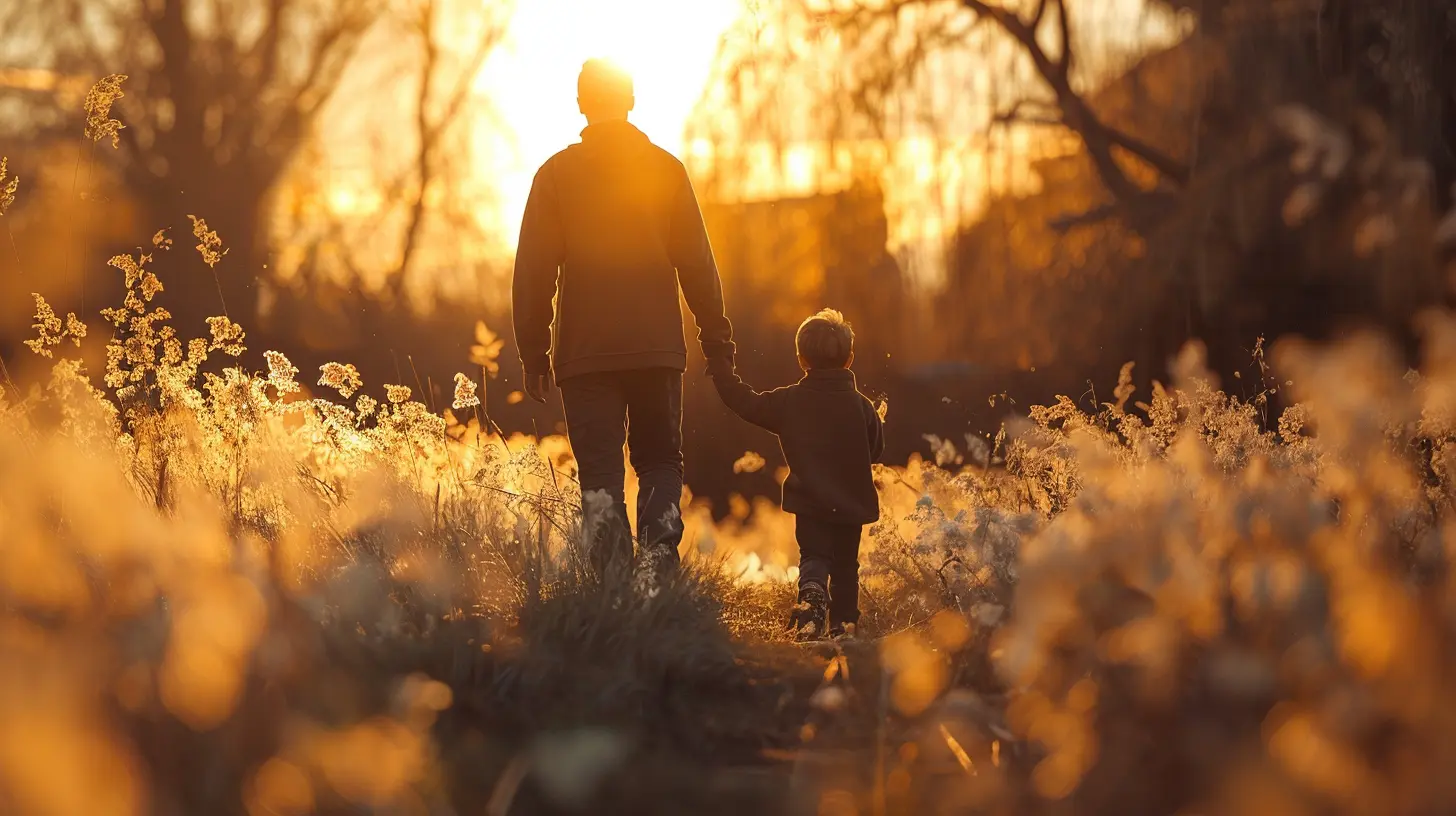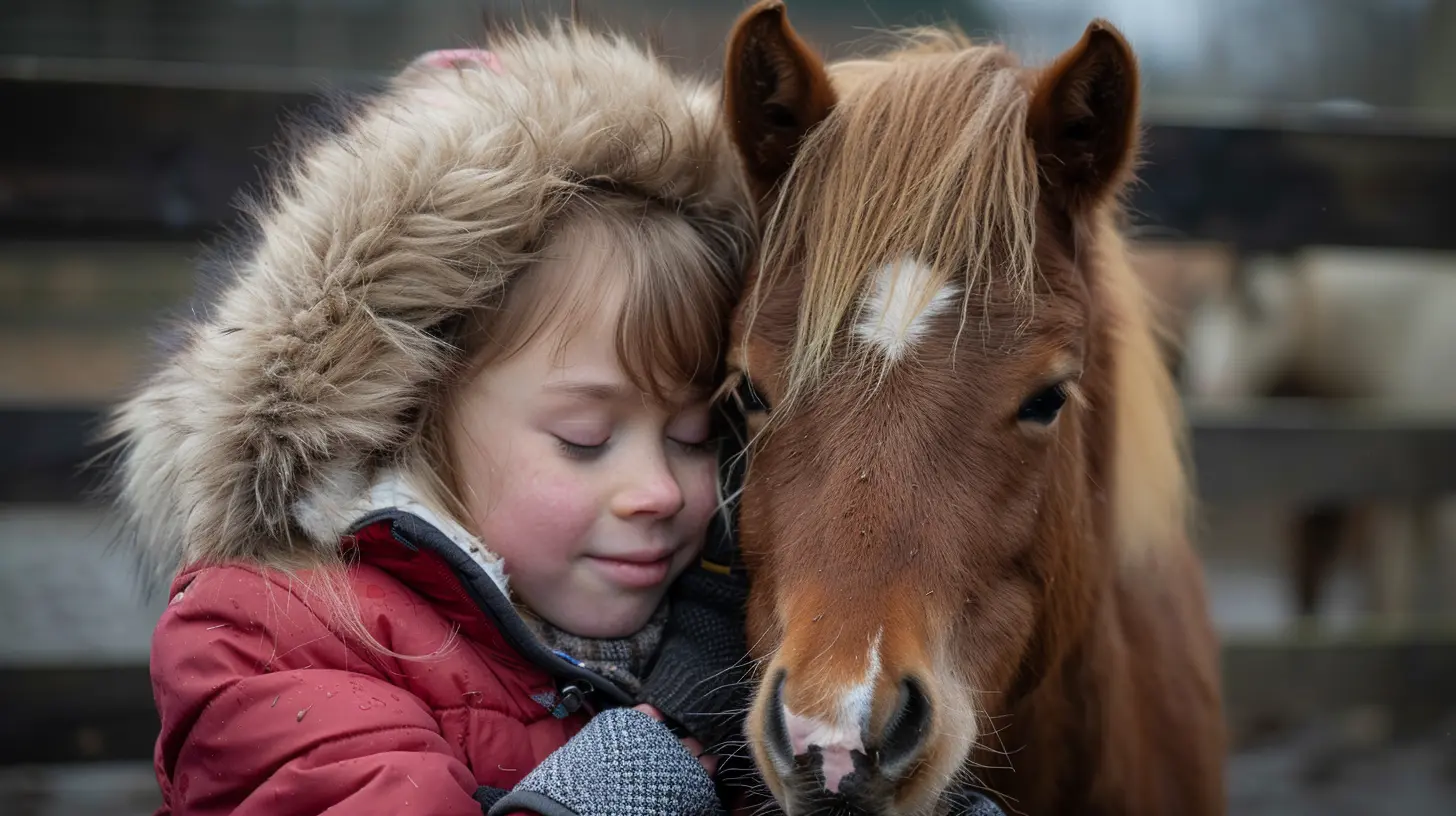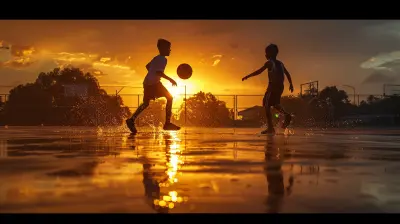The Benefits of Equine Therapy for Children with Special Needs
21 April 2025
Ah, horses. Majestic, powerful, and, apparently, the best therapists in town. Who knew that the real MVPs of emotional support weren’t just golden retrievers but also thousand-pound animals with a love for carrots? If you're a parent navigating the world of special needs therapies, let me introduce you to the unsung hero of emotional and physical development—equine therapy.
Now, before you roll your eyes and think, Oh great, another trendy therapy, let me stop you right there. This isn't just about kids sitting on a horse and looking cute for Instagram. Equine therapy is backed by science, adored by therapists, and—brace yourself—actually works. So, saddle up (pun absolutely intended), because we’re diving into the incredible benefits of equine therapy for children with special needs.

What Is Equine Therapy? (And Why Should You Care?)
Equine therapy, or horse therapy, involves structured interactions between children and horses to improve physical, emotional, and social skills. It's not some fancy spa day for kids where they get to pet ponies while sipping juice boxes. No, this therapy is all about engagement, trust, and growth—disguised as fun.Children groom, ride, and work alongside horses, and in the process, they develop life-changing skills. It's like sneaking vegetables into mac ‘n’ cheese—your child is gaining strength and confidence, and they don't even realize it's therapy. Win-win!

The Magic of a 1,000-Pound Therapist
So, why horses? Why not dogs, cats, or, I don’t know, a particularly empathetic goldfish? Well, horses have a unique ability to connect with humans in ways that therapists (sorry, humans) sometimes can’t.1. Non-Judgmental Companions
Let’s be real—kids are constantly being evaluated. Whether it’s in school, therapy sessions, or by random strangers who think they know best (cue the unsolicited parenting advice), children with special needs often feel under a microscope. Horses, on the other hand? They don’t care if you have trouble communicating, if your motor skills need improvement, or if you just had a meltdown over the color of your socks. They just accept you as you are.A horse doesn’t shame a child for stimming, speaking differently, or needing extra time to process emotions. They are the ultimate hype-men—silent, strong, and incredibly loyal.
2. Building Physical Strength (Without a Boring Gym Session)
Getting kids to exercise can feel like trying to convince a cat to take a bath. But when that exercise involves riding a horse? Suddenly, movement is the most exciting thing ever.Riding helps improve:
- Core strength – Balancing on a moving horse works those ab muscles better than any sit-up challenge.
- Coordination – Controlling a horse requires multitasking, which helps develop fine and gross motor skills.
- Posture – Say goodbye to slouching, because maintaining posture on a horse is non-negotiable.
And the best part? Kids don’t even realize they’re working out. It’s just fun.
3. Enhancing Emotional Growth (Therapists Take Notes)
Horses are basically giant emotional mirrors. They pick up on feelings faster than your best friend who can tell something’s wrong just from your one-word text. If a child is anxious, scared, or frustrated, the horse will respond accordingly. This means equine therapy teaches kids emotional regulation in a way that’s natural, intuitive, and without the awkward "So, how does that make you feel?" conversations.Children also develop:
- Increased self-confidence when they learn to control such a large animal.
- Enhanced patience—because trust me, horses operate on their own timeline.
- Improved self-awareness—they start recognizing how their emotions impact others (including a 1,000-pound creature).
4. Developing Social Skills (Without Forced Group Activities)
For kids who struggle with social interactions, even traditional therapy can feel overwhelming. Enter our four-legged therapists, who—ironically—are excellent at teaching human interaction.Horses help children:
- Improve communication – Whether through verbal commands, non-verbal gestures, or body language, interacting with a horse requires clear communication.
- Learn empathy – Horses have feelings too (yes, really), and kids learn to recognize and respect them.
- Strengthen trust – Building a bond with a horse translates into improved relationships with people.
Unlike awkward icebreaker games, this form of social learning feels natural. No uncomfortable small talk required.
5. Boosting Independence (Because Helicopter Parenting Can Only Go So Far)
One of the hardest things for parents of children with special needs is the constant balancing act between support and independence. You want to help, but you also want them to thrive on their own.Equine therapy empowers kids to:
- Take responsibility (grooming, feeding, and caring for a horse isn’t a small task).
- Make decisions (because "Should I turn left or right?" is a serious dilemma on horseback).
- Gain confidence in their abilities (because, hello, they just commanded a horse to follow their lead!).
It’s not just about riding—it’s about growth, autonomy, and belief in themselves.

But Is It Actually Effective? (Or Just Another Trend?)
If you think equine therapy sounds too good to be true, you’re not alone. But research backs it up. Studies have shown that equine-assisted therapy benefits children with autism, cerebral palsy, ADHD, and various developmental disorders.Improvements have been noted in:
✔ Motor skills
✔ Communication abilities
✔ Sensory processing
✔ Emotional well-being
✔ Social skills
So, while this may sound like just another feel-good therapy trend, the results speak for themselves.

How to Get Started (Before You Impulse-Buy a Horse)
Tempted to head to the nearest farm and adopt a therapy horse for your backyard? Let’s slow down. If you’re interested in equine therapy for your child, here’s a better (and less life-altering) approach:1. Find a Certified Program – Look for equine therapy centers with trained professionals experienced in working with children with special needs.
2. Schedule a Trial Session – Let your child interact with a horse and see how they respond before committing.
3. Work with Your Child's Therapist – Collaborate with their existing therapy team to incorporate equine therapy into their treatment plan.
4. Be Patient – Just like with any therapy, results take time. But trust the process—it’s worth it.
The Final Trot
At the end of the day, equine therapy isn't just about horses—it's about confidence, growth, movement, and connection. It’s therapy disguised as play, progress wrapped in fun, and honestly, a break from the usual routine for both kids and parents.So, if traditional therapy feels like an uphill battle and you’re looking for something that actually works (without the struggle), maybe it’s time to trade in the therapy couch for a saddle. After all, who wouldn’t want a therapist that comes with a mane and a tail?
all images in this post were generated using AI tools
Category:
Special NeedsAuthor:

Steven McLain
Discussion
rate this article
4 comments
Tatianna Fields
Equine therapy offers unique benefits for children with special needs, fostering emotional growth, enhancing communication skills, and improving physical coordination. Interacting with horses can build trust, boost self-esteem, and promote social skills. This therapeutic approach not only engages children but also nurtures their overall well-being in a supportive environment.
May 5, 2025 at 3:17 PM

Steven McLain
Thank you for highlighting these key benefits of equine therapy! It's truly remarkable how interactions with horses can positively impact children's emotional, social, and physical development.
Carrie Hardy
Thank you for sharing this insightful article! Equine therapy for children with special needs truly highlights the unique bond between humans and animals. It's heartwarming to see how these experiences can foster growth, confidence, and joy in our little ones. Excited to learn more about this amazing approach!
April 29, 2025 at 2:41 PM

Steven McLain
Thank you for your kind words! I'm glad you found the article insightful. Equine therapy truly is a wonderful way to support children’s growth and confidence. Excited to share more about it!
Felix McDougal
Equine therapy offers unique benefits for children with special needs, fostering emotional growth, improving social skills, and enhancing physical coordination. The bond formed with horses can boost confidence and provide a calming, therapeutic experience that promotes overall well-being.
April 23, 2025 at 3:40 PM

Steven McLain
Thank you for highlighting these important benefits! Equine therapy truly offers a holistic approach to supporting children with special needs, fostering both emotional and physical development.
Zanya Lee
Thank you for highlighting the incredible benefits of equine therapy for children with special needs. It's heartwarming to see how these beautiful animals can positively impact young lives.
April 21, 2025 at 2:37 AM

Steven McLain
Thank you for your kind words! I'm glad you found the article insightful and appreciate the positive impact of equine therapy.



